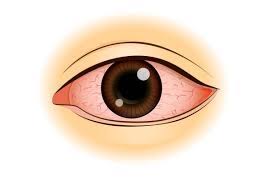Dry eyes, also known as keratoconjunctivitis sicca, occur when the eyes do not receive sufficient lubrication due to inadequate tear production or rapid tear evaporation. In some cases, dry eyes may lead to excessive tearing, a paradoxical response known as reflex tearing.
Types of Dry Eyes:
Evaporative tear deficiency or aqueous tear deficiency
Dysfunctional tear deficiency
Keratoconjunctivitis sicca
Lacrimal keratoconjunctivitis
LASIK-induced neurotrophic epitheliopathy
Symptoms of Dry Eyes:
Dry eyes are often self-diagnosed and may present with the following symptoms:
Presence of stringy mucus in or around the eyes.
A burning, stinging, or scratching sensation in the eyes.
Eye redness.
Difficulty driving at night.
A feeling of irritation or the sensation of a foreign object in the eyes.
Discomfort while wearing contact lenses.
Excessive tearing due to irritation.
Eye fatigue.
Blurred vision.
If dry eye symptoms persist, it is advisable to consult a doctor, as tear instability can lead to damage to the eye's surface.
Common Causes of Dry Eyes:
Several factors contribute to dry eyes, including:
Ageing.
Prolonged screen time.
Laser eye surgery.
Vitamin A deficiency.
Menopause.
Autoimmune disorders.
Exposure to wind, especially in cold climates.
Blepharitis (inflammation due to clogged oil glands in the eyelid).
Dehydration.
Eye allergies.
Dry eye syndrome can be temporary or chronic. If left untreated, chronic dry eyes can lead to complications such as infections or double vision.
Preventive Measures
To help prevent or manage dry eyes, consider the following:
Wear wraparound sunglasses or protective eyewear.
Take breaks when using digital screens.
Increase humidity in your environment.
Avoid direct airflow into your eyes.
Use humidifiers and air filters to regulate your surroundings.
Avoid smoking and exposure to cigarette smoke.
Apply artificial tears for lubrication.
Use warm compresses on your eyes.
Include omega-3 fatty acids in your diet.
Seek medical attention if irritation becomes severe.
Consuming zinc, along with vitamins B6, B12, C, and E, may help alleviate dry eye symptoms.
Tips for Managing Dry Eyes:
Stay hydrated.
Take fish oil supplements.
Blink frequently, especially when using screens.
Rinse your eyes with water at least 2-3 times daily.
Clean your eyelids using mild soap or baby shampoo to reduce inflammation.
Follow a gluten-free or anti-inflammatory diet to help reduce symptoms.
Limit alcohol and caffeine intake.
"I shut my eyes and all the world drops dead; I lift my eyes and all is born again." - Sylvia Plath.
|

